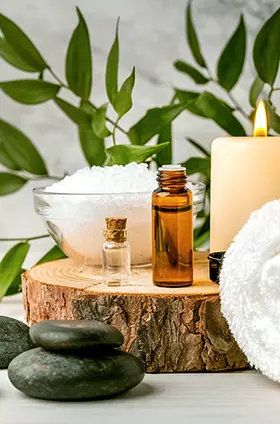
Recovery is not linear. It twists, pauses, and sometimes backtracks. There are moments that feel heavier than others, and days when even the smallest step forward feels impossible. That’s why having something reliable to turn to, something that gently reminds you of your strength and the work you’ve already done, can make a meaningful difference. A wellness toolbox is just that.
It isn’t a cure or a quick fix, but a collection of daily practices, coping skills, and supportive habits that help anchor you when things begin to drift. For those in recovery, especially during the early phases, these tools can support mental and emotional balance while fostering a sense of agency.
At River House Wellness, we walk alongside individuals through these challenging periods. Our role is to help you not only identify what helps, but learn how to use those tools effectively in real life. This blog offers a place to start, or continue, building your wellness toolbox.
Why a Wellness Toolbox Matters in Recovery
For many people, recovery goes beyond avoiding what once caused harm. It becomes a process of learning what helps, what matters, and how to move through each day with more ease.
A wellness toolbox helps you respond to everyday stressors with more ease and confidence. Instead of feeling caught off guard by a difficult emotion or a tough conversation, you have options. Tools can ground you in moments of anxiety, offer calm when your thoughts are spiraling, or simply remind you that you’re not stuck in this feeling forever, which is critical since relapse is common in recovery.
These practices also help you understand your patterns. You begin to notice what soothes you, what fuels you, and what pulls you away from your sense of balance. Over time, your toolbox becomes less about just surviving hard moments and more about maintaining a life that feels steady and fulfilling.
What goes in a wellness toolbox depends on you. There isn’t a perfect list, but at River House Wellness, we help our clients discover what fits by exploring different strategies in a supportive setting, one that invites curiosity instead of pressure.
Core Components of a Wellness Toolbox
There are a few foundational categories to consider when thinking about what to include. These categories reflect the different dimensions of a person’s well-being and can serve as a guide while you experiment with what feels most grounding.
Self-Care Rituals
Daily routines that support your physical, emotional, and mental health can create a sense of rhythm and safety. These don’t have to be elaborate. Often, the smallest rituals have the biggest impact.
For example,having a morning routine that includes a hot shower, a glass of water, and a few minutes of quiet time can provide structure to the start of your day. Prioritizing regular meals, limiting caffeine if it increases anxiety, and getting consistent sleep are also important. Even basic hygiene can feel restorative when everything else feels out of control.
What matters is not perfection, but consistency. These practices tell your nervous system, over and over again, that you are safe.
Mindfulness and Grounding Practices
Mindfulness doesn’t require sitting on a cushion for an hour in silence. It might look like taking a few breaths before responding to a stressful email, noticing the sounds outside your window, or grounding yourself with a sensory check-in. These practices help you return to the present moment when your thoughts try to pull you into fear, shame, or regret.
Some people find structure in guided meditations or yoga. Others prefer quiet walks where they can focus on the rhythm of their steps. Breathwork, journaling, or naming five things you can see, four you can touch, three you can hear, two you can smell, and one you can taste are grounding strategies that you can use anytime, anywhere.
At River House Wellness, mindfulness is integrated into many parts of the treatment experience, giving you time to try different techniques and see what resonates.
Connection and Community
Healing doesn’t happen in isolation. Research suggests that individuals involved in peer-based support programs are significantly more likely to remain abstinent and report greater life satisfaction.
Many people in recovery have spent years feeling disconnected from themselves, from others, or from their sense of belonging. Community doesn’t have to mean being around a lot of people all the time. It might mean having one friend you check in with each day, joining a support group, or writing letters to someone who understands what you’re going through.
Connection reminds you that you are not alone. Sharing space with others who are also doing the work can offer perspective and encouragement. At River House Wellness, group therapy and peer support are central. These relationships often become part of a person’s long-term support network.
Creative Expression and Play
Recovery can be intense. Sometimes it’s easy to forget the importance of play and creativity, so giving yourself space to create, without expectations or judgment, can be incredibly healing.
Art, music, movement, writing, or even cooking a new recipe can connect you to parts of yourself that were quieted during periods of distress. Multiple studies have shown that art and music therapy can significantly reduce symptoms of anxiety and depression in people recovering from trauma or addiction.
This isn’t about being good at something. It’s about giving your inner world a place to speak. If you loved painting as a child, or used to write stories but haven’t in years, these practices might be worth exploring again. Within our programs, River House Wellness offers opportunities for expressive therapies and creative exploration.
Purpose, Spirituality, and Meaning
This area of the toolbox looks different for everyone. For some, it includes formal religious practice. For others, it’s about exploring their own questions and finding what brings peace or clarity. Purpose can come through helping others, caring for a pet, nurturing a garden, or simply knowing that your life matters.
Many people in recovery say that reconnecting with a sense of meaning changed everything for them. It didn’t always happen right away, and sometimes it took trying different paths. Practices that support spiritual well-being might include meditation, nature walks, keeping a gratitude list, reading spiritual texts, or spending time in silence. These can be grounding in moments when the world feels chaotic or uncertain.
Practical Coping Skills and Crisis Strategies
When you’re in a tough moment, it helps to have specific, actionable steps you can take. Your toolbox might include things like:
- A list of people you can call or text
- A calming playlist
- A grounding exercise written on a card
- A reminder of why you chose recovery
- Notes to yourself for when you feel overwhelmed
Sometimes the hardest part is remembering what helps when everything feels loud. Having these tools prepared in advance makes it easier to reach for something when your energy is low. In treatment, we help clients practice these strategies so they become more intuitive over time.
How to Build Your Personalized Toolbox
Start by noticing what brings you calm. What activities make you feel more like yourself? What helps when you’re anxious, lonely, or sad? Keep a journal or note on your phone to track patterns. Try new things, but be gentle with yourself. Not every tool works for every person.
You can also organize your toolbox into categories: things to do when you have five minutes, things to do when you have more time, and things that involve other people. Make it visual if that helps. Some people create a physical box with objects, while others keep a digital folder with reminders and links.
What matters most is that the tools feel accessible and realistic for you. This isn’t a checklist to complete. It’s a way to support yourself in the life you are building.
How River House Wellness Supports This Work
We understand that even the thought of entering treatment can be more than you can bear. You may be carrying shame, uncertainty, or fear. For that reason, our team is trained in clinical care, and compassion. Many of us have walked this path in some way, whether personally or alongside loved ones. We know what it means to feel lost and to take the first step back toward yourself.
Oru team will help you explore tools that feel right for you. We don’t believe in forcing a certain model or routine. Instead, we create space to try different approaches, reflect on what works, and adjust as needed. Through individual therapy, group sessions, holistic practices, and thoughtful aftercare planning, we guide you in building a wellness toolbox that supports you well beyond your time with us.
Recovery doesn’t end when treatment does. In many ways, that’s when the real work begins. We understand how different the world can feel once you leave the structure and support of a treatment setting. That’s why we place just as much focus on what comes next. Whether it’s refining your coping strategies, strengthening your support network, or preparing for challenges that might arise, we work with you to build a foundation that lasts.
If you’re not sure where to begin, you’re not alone. We invite you to connect with us at River House Wellness. Our team is here to listen and help you take the next step with care and without judgment. You deserve support that meets you where you are and stays with you for the long haul. We’re here when you’re ready.



